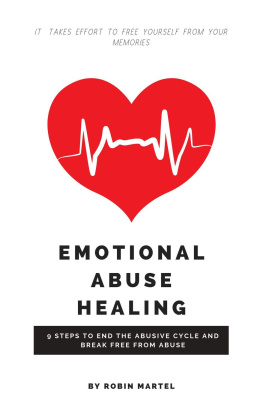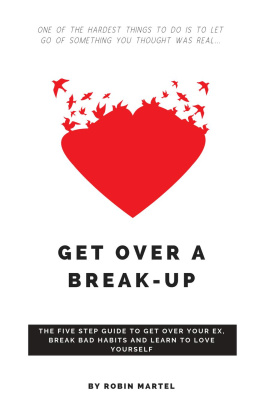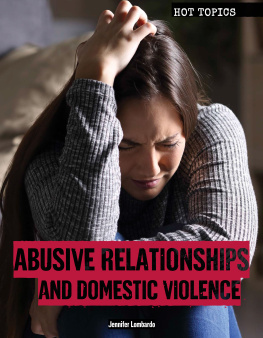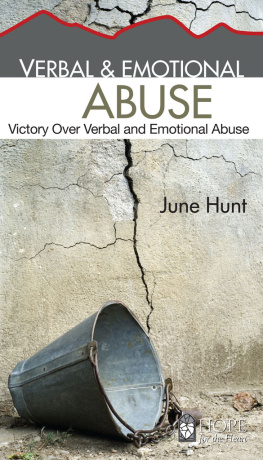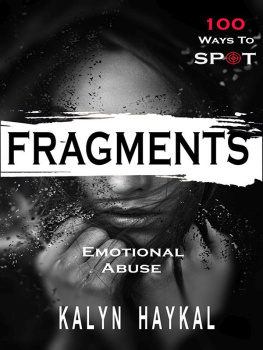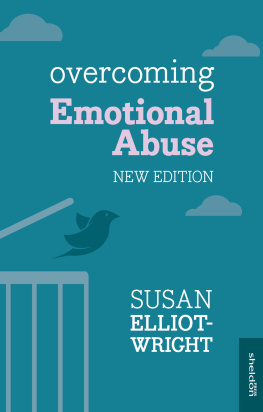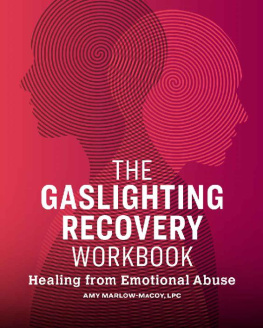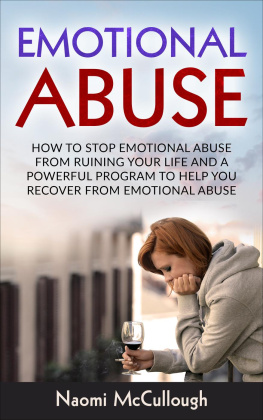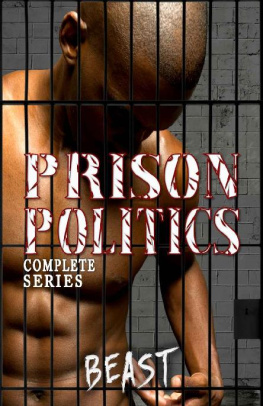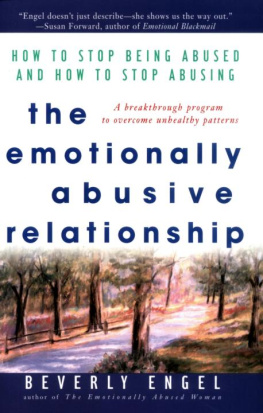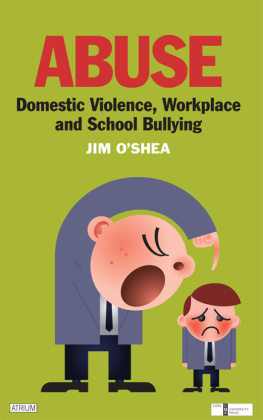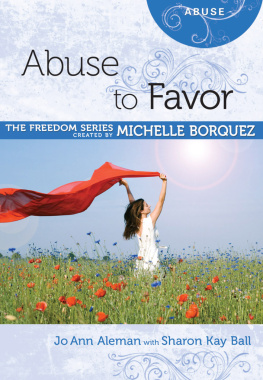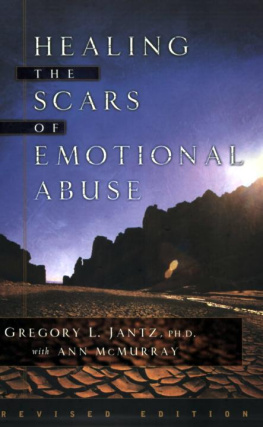Emotional Abuse Healing: 9 Steps to End the Abusive Cycle and Break Free From Abuse
By Robin Martel
Chapter 1 - What is emotional abuse?
I f you ask somebody to define physical abuse, theyd likely be able to give a clear, concise answer. In fact, if you ask several people what physical abuse is, theyll all give you a very similar answer.
However, if you ask people the same question about emotional abuse, youre not as likely to get a clear-cut answer. For many people, emotional abuse is a grey area. They understand its perhaps something to do with your significant other treating you badly or calling you hurtful names, but they can rarely give a definite answer on what they believe emotional abuse is.
Answers would likely be vague, like emotional abuse is making your partner feel small, or emotional abuse is being nasty to your partner.
Being on the receiving end, you and I know, its much, much more than that.
Its serious and its emotionally damaging and the law, after many years of not recognizing this as a serious matter, is slowly beginning to treat this type of abuse for what it is: criminal.
If youre reading this, you have perhaps had dealings with the law in regards to your partners treatment of you already, or youve thought about doing so.
I endured nearly eleven years of emotional abuse you may have endured more or less, but regardless of how long we have spent in our situations, one thing is for sure: we dont deserve it.
My story does have a happy ending, however, and I can proudly tell you I have flourished since escaping the shackles of my emotionally abusive relationships. I cant tell you it was easy, but I can tell you that it was worth it.
I entered an emotionally and physically abusive relationship in my late teens, which was my first real relationship. The next relationship I had after that was emotionally abusive also. For seven years and almost four years respectively, I endured an array of emotional abuse.
I use the word array because emotional abuse isnt just one thing; it takes many shapes and forms, and can sometimes disguise itself as kindness or love. This variety includes:
- Criticism. Saying things to hack away at your confidence and self-esteem are classic forms of emotional abuse. Little by little these criticisms chip away and leave you with an unpleasant opinion of yourself.
- Intimidation. People who emotionally abuse use intimidation to make their partner feel small and take away their voice. Intimidation can be recognized by them acting aggressive, shouting or doing things to make you feel scared.
- Undermining. This includes getting your opinion dismissed, having your opinion belittled or questioning your version of events. The emotional abuser can often do this in a nice way to offer more confusion and upset.
- Guilt. An emotional abuser can use guilt as a form of control; sulking to get what they want or threatening to harm you or themselves if you dont abide by their wants. Silent treatment is also a guilt-trip method abusers use.
- Withholding. Whether this is withholding money or not letting you get a job, the emotional abuser uses these methods to strip you of your independence and limit the choices you can make about your life.
- Control. Control is what emotional abuse is all about; sometimes the abuser will tell you who you can or cant see, what you can wear or how much makeup youre allowed to put on.
For almost eleven years, I suffered all the above. For a long time, I refused to accept I had been the victim; I didnt want to feel weak or any more worthless than I already did. I wouldnt face up to what I had been through or what I would continue to go through if I stayed in the relationship.
It was only when I decided that I needed to take control and stop blaming myself for everything that I began the process of breaking through emotional abuse. Like I said before, it wasnt easy but its the best thing Ive ever done. And the power to change my situation had been in my hands all along, it just took me hitting rock bottom to find this out.
During my eleven years of abuse, I was isolated. One by one, I was being made to let go of my friends. I couldnt spend too long at the shops for fear of an argument arising when I returned home. I couldnt go for drinks with colleagues after work. What I wore was scrutinized. My money was accounted for. I was told nobody else would have me. I was told I was crazy and dangerous when I tried to confront this behavior. I was made to feel less than nothing.
For over a decade I was demeaned, controlled, and my feelings were disregarded.
My second relationship, which was purely based on emotional abuse, proved to be the one that made me break out of my shackles and demand that enough was enough.
Looking back on that time, I can see that the games of power started early in the relationship.
When I would gout with certain friends, he would question why I liked hanging out with them and sulk whenever I did. Id get the silent treatment if I behaved in a way he didnt like and if we argued, he would leave for days and days on benders and binges. It later transpired he was cheating during this time.
Ill divulge more of my personal story during this book, but more importantly, Id like to offer my guidance and strategies on emotional abuse recovery and aid you through it. Ive come out of the other side better, happier and still flourishing. I want that for you, too.
Chapter 2 - The warning signs of emotional abuse
W arning signs that you are in an abusive relationship are often subtle. The abuser usually begins with smaller, more understated gestures that arent always seen for what they truly are, and can usually be taken as something much less sinister (for example, you may perceive their neediness and clinginess as cute, but in fact, its the beginnings of possessive behavior).
Not all abusers show all of these warning signs, but they are a good indicator of what could lay ahead in the future.
Personally, during the emotionally abusive relationships I was in, I can look back and see the traits that I have laid out below run parallel to each relationship; the warning signs were there, I just buried my head in the sand.
#1 Overly needy: The abuser will often require emotional support, in some form, from you. Bleeding heart type behavior can be an early (and ongoing) indicator of emotional abuse.
#2 Overreacting: Small comments and simple situations can make an abuser over-emotional, edgy and snappy. The abuser can also refuse to disclose what they are overreacting about, to further add to your confusion and upset.
#3 Insecurity: Whilst we can all be insecure at times; the emotional abuser is often unjustifiably so they question peoples motives and have unfounded suspicions.
Next page
